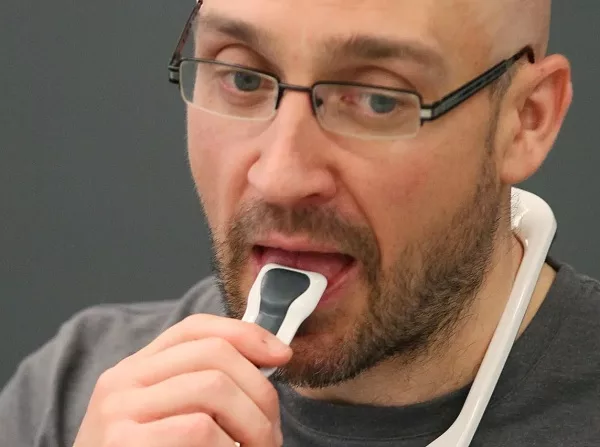The BART Foundation’s mission is to promote better outcomes for brain injury survivors by answering three questions: Which alternative therapies are likely to work, where can they be found, and how can they be afforded? We fulfill our mission by carefully monitoring global research and clinical trial outcomes and sharing that information in user-friendly language with the TBI/ABI community.
We recently added Portable Translingual Neurostimulation (PoNS) technology to our roster of safe alternative therapies. We believe this technology may help brain injury survivors achieve better outcomes. (Please visit our PoNS page to learn more and watch a video describing the technology.)

A recent research article published in Frontiers in Human Neuroscience indicates that Translingual neurostimulation (TLNS) paired with physical therapy (PT) may facilitate improved rehabilitation outcomes. The Portable Neuromodulation Stimulator (PoNS®) is a device that uses the TLNS method to facilitate neurorehabilitation. The PoNS® device involves sequenced non-invasive electrical stimulation applied to the tongue.
This multicenter, retrospective Canadian study involved thirty-three real-world clinical patients spanning from mild-to-moderate traumatic brain injury (TBI), stroke, Multiple Sclerosis (MS), Parkinson’s Disease (PD), and other neurological conditions.
The results showed significant variation between baseline and endpoint following TLNS/PT treatment, with further examination showing condition-specific significant improvements in attention processing. Additionally, when TLNS was paired with cognitive training in healthy individuals, the experimental group showed significant increases in markers of attention and cognitive vigilance.
Given the evidence and support for TLNS as a promising mechanism to create change in widespread clinical populations, expanding the investigation of cognitive brain vital signs in real-world rehabilitation applications across various neurological disorders represents an important next step.
